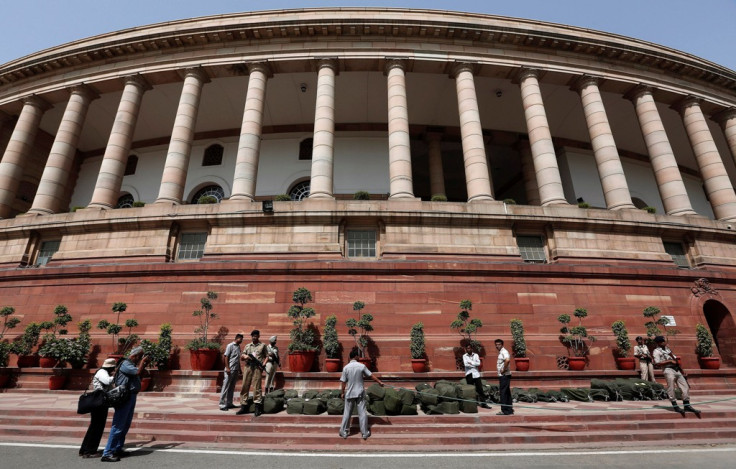India's Sovereign Ratings Safe Now as Targets Stay Credit-Positive but Downside Risks Remain

India's sovereign credit rating at various agencies are safe for now as the fiscal and economic targets detailed in budget 2014 are credit-positive, but if the Modi government fails to meet the ambitious targets, the ratings may be affected.
Fitch and Moody's Investors Service say they are happy with the fiscal and growth targets in the 10 July budget but are unsure how will those be met.
The Big Aims
India's aim to return to 7-8% GDP growth on a sustainable basis within three years seems very difficult to realise given its current performance, which is a little above 5%.
And when it comes to fiscal performance, Finance Minister Arun Jaitley has maintained the previous government's budget deficit targets of 4.1%, 3.6% and 3.0% of GDP for 2014-15, 2015-16 and 2016-17, respectively. Fitch says this compares with their forecasts of 4.6%, 4.1% and 4.0% over the same period.
The budget divestment target of 634.2bn rupees ($10.53bn) compares with about 258 bn rupees in both 2012-13 and 2013-14. The FY14 divestment undershot an initial budgeted amount of 558 bn.
In addition to that, the budget has included an investment of 2.4 trillion rupees (2% of 2014-15 GDP) in state-run lenders between now and 2018-19.
Risks
Fiscal consolidation is to be led by revenue according to the new finance minister, who talks about the introduction of a new goods and services tax (GST), crackdown on the shadow economy, and higher tax revenues from stronger economic growth.
Fitch says that there are implementation risks to these policies. "The GST will need agreement at the state level, and it remains to be seen how the new tax will look after negotiations," said Andrew Colquhoun, Senior Director, Sovereigns, at Fitch.
About the banks re-capitalisation target, he says the government target is broadly in line with Fitch's own estimates, but adds, "it could be a source of fiscal slippage over the medium term if banks' balance sheets turn out to be in a worse condition than currently thought."
Moody's said that it is difficult to assess the likelihood that future deficit targets will be met as the budget announcement lacked details on revenue and expenditure measures to lower the deficit.
"The government's announced intention to reduce subsidy expenditures was not accompanied by proposed changes to the current subsidy regime. Similarly, the commitment to implementing the long-planned Goods and Services Tax was reiterated, but without guidance on its details," said Atsi Sheth, a senior vice president at Moody's.
"Moreover, unless GDP growth revives from current levels, tax revenues could be lower than forecast, jeopardising the deficit target," New York-based Sheth said in her post-budget comments emailed to the press.
Optimism
While admitting that implementation of the targets is difficult as well as crucial many believe that the new government can achieve that.
"They seem to be committed to the fiscal deficit target," Madan Sabnavis, Chief Economist at Care Ratings, told IBTimes UK.
"If revenues didn't meet expectations they may cut some expenditure , which means even at the cost of some growth they will try to meet the deficit target," Mumbai-based Sabnavis said.
International rating agencies will also look at external scenario and exchange rate stability before acting upon the sovereign rating, and now, those look supportive for India, he said.
"External factors will not be the driving force in propelling Indian growth," Sabnavis said, suggesting that setting a good policy framework and implementing the needful measures within the country remains key.
Government Little Worried
The finance minister says rationalising subsidies is a big challenge and withdrawing all subsidies is not possible now as many people are living on that and they deserve it too.
"I have no authority to rate rating agencies," Jaitely told CNBC TV on 11 July when was asked about potential rating downgrade risks.
© Copyright IBTimes 2025. All rights reserved.






















